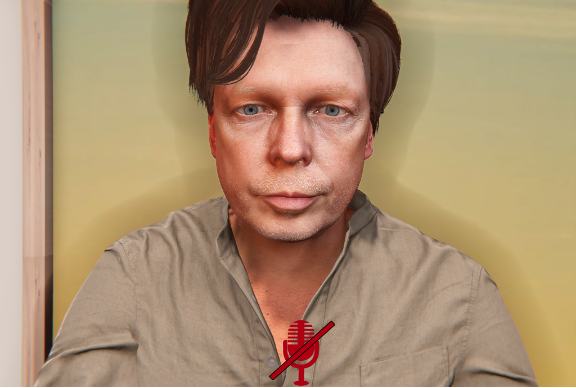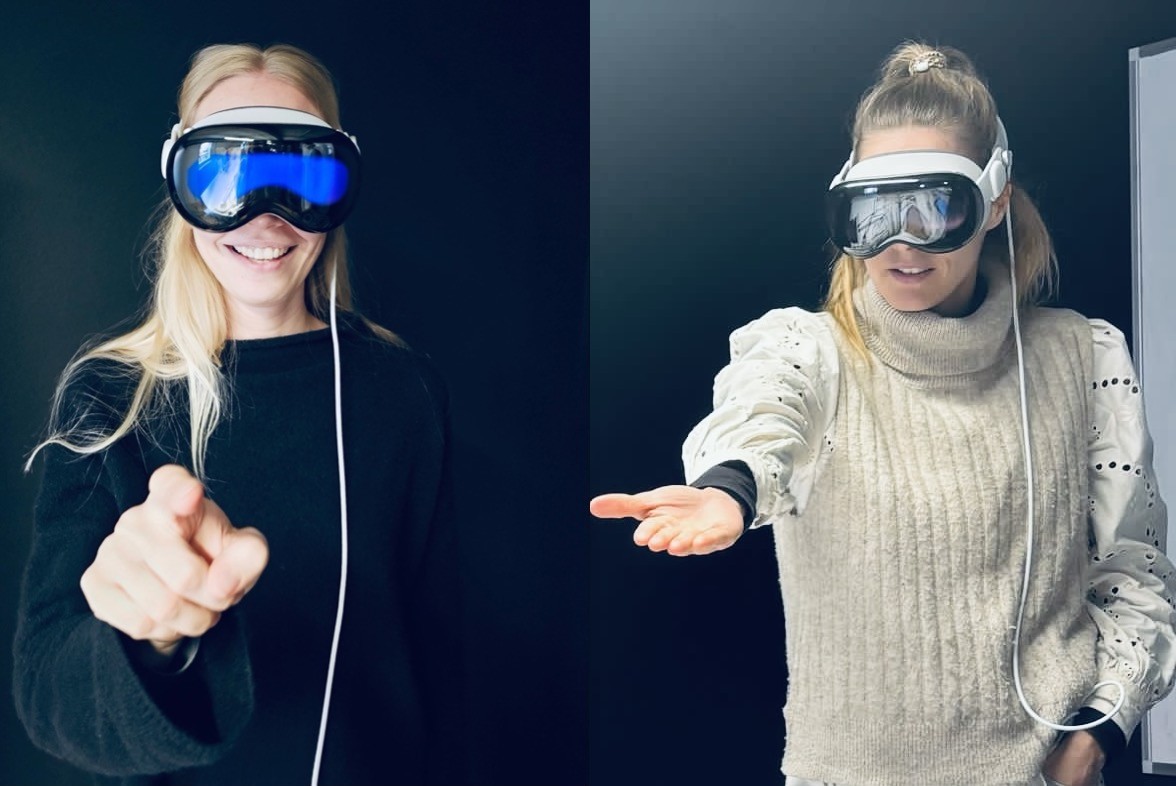- English
- Our Research
- Technology-Assisted Psychotherapy
- Our Projects
Technology-Assisted Psychotherapy
Our Projects
We launched our first projects related to technology-assisted psychotherapy with funding from Gesundheitswirtschaft Hamburg and the Hamburg Investment and Development Bank (IFB). These focused on investigating VR and mixed reality (MR) ERP in patients with obsessive-compulsive disorder (OCD). The aim is to enhance the efficacy of established therapeutic methods through technical augmentation while simultaneously reducing implementation barriers. A short demonstration video of the MR intervention can be found below.
In cooperation with the Karolinska Institute in Sweden, another project focuses on a disorder-nonspecific exposure therapy in VR for the treatment of public speaking anxiety. This intervention aims primarily to increase readiness for in vivo exposure in patients with anxiety and OCD.
Another project involved the evaluation of avatar-based psychotherapy for OCD. With the help of a custom-designed avatar representing their OCD, patients learn to distance themselves from their compulsions and engage in dialogue with them. Our first pilot study demonstrates the feasibility and safety of the intervention.
We have also improved the original version of FlowVR—a resource-oriented, nature-inspired VR intervention for treating depressive symptoms and promoting mindfulness. Originally developed as a standalone intervention, we adapted it to a VR group format. Initial results show significant improvements in symptomatology, self-efficacy, and flow experience, along with high safety in clinical group settings.
AI offers new opportunities to complement and expand psychotherapeutic care—provided it is developed carefully, tested thoroughly, and ethically grounded. As part of a collaborative project funded by the German Federal Ministry of Education and Research (BMBF), we are working with university and industry partners—including the University of Hamburg, the University of Applied Sciences Düsseldorf, and the company Sympatient—to develop an intelligent virtual psychotherapeutic agent. In several studies, we are investigating key questions around the feasibility, user satisfaction, and safety of this AI-assisted approach.


Miegel, F., Jelinek, L., Lohse, L., Moritz, S., Blömer, J., Juckoff, K., Yassari, A., & Rolvien, L. (2025). Exposure therapy in mixed reality for obsessive-compulsive disorder: A randomized clinical trial. JAMA Network Open, 8(5), e2511488. https://doi.org/10.1001/jamanetworkopen.2025.11488
Wille, L., Lohse, L., Jelinek, L., Moritz, S., Schultz, J., Borsutzky, S., Yassari, A. H., Mariegaard, L., Vernal, D. L., Bekker, S. H., Glenthøj, L. B., & Miegel, F. (2025). Enhancing insight in patients with obsessive-compulsive disorder: A case study on avatar therapy using virtual reality. Journal of Clinical Psychology. https://doi.org/10.1002/jclp.23772
Miegel, F., Lindner, P., Schultz, J., Lohse, L., Yassari, A. H., & Jelinek, L. (2025). Breaking barriers? Targeting willingness to improve engagement in exposure therapy through a disorder-nonspecific exposure session in virtual reality. Current Psychology, 1–17. https://doi.org/10.1007/s12144-024-07194-9
Miegel, F., Lohse, L., Jelinek, L., Scheunemann, J., Gabbert, T., Schauenburg, G., Bittner, L., Mostajeran, F., Kühn, S., Gallinat, J., & Yassari, A.-H. (2024). Digital nature: Unveiling the impact and safety of FlowVR group intervention for depression in a feasibility trial. Acta Psychiatrica Scandinavica, 1–13. https://doi.org/10.1111/acps.13731
Miegel, F., Jelinek, L., Moritz, S., Lohse, L., Yassari, A. H., & Bücker, L. (2023). Mixed results for exposure and response prevention therapy in mixed reality for patients with contamination-related obsessive-compulsive disorder: A randomized controlled pilot study. Journal of Clinical Psychology, 79(10), 2317–2336. https://doi.org/10.1002/jclp.23550
Miegel, F., Bücker, L., Mostajeran, F., Baumeister, A., Moritz, S., Kühn, S., Lohse, L., Blöhmer, J., Grzella, K., & Jelinek, L. (2022). Exposure and response prevention in virtual reality for obsessive-compulsive disorder: A case series. Psychiatric Quarterly. https://doi.org/10.1007/s11126-022-09992-5
Rolvien, L., Jelinek, L., Lohse, L., Moritz, S., Borgmann, L., Gallinat, J., Kühn, S., & Miegel, F. (under review). Exposure with response prevention in virtual reality for obsessive-compulsive disorder: A randomized controlled trial. Manuscript under review.
